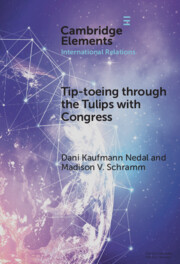Conflicts resulting from the dual legitimacy problem of presidential systems (where the president and the legislature are elected by different majorities) sometimes result in legislative gridlock – a point made by those who criticize the alleged perils of presidentialism. The socialist government of Salvador Allende (1970–73), that ended with the breakdown of democracy, is often used as a poster child for legislative gridlock. With information on the 23,798 bills and 12,809 laws enacted in Chile between 1932 and 1973, we compare the passage of legislation in eight presidential terms and demonstrate that not to be the case. Legislative output showed an upward trend after the 1943 constitutional reform but was on a downward trend since the mid-1960s, before the 1970 constitutional reform restricted the scope of bills that legislators could introduce. Under Allende, while 1653 bills were introduced (438 of which were presidential bills), 642 laws were passed (38.8% and 68.2%, respectively) – compared to 53.8% and 39.9% for all presidents in the period, respectively. The evidence does not justify the claim that there was legislative gridlock under Allende. Instead, variations in legislative output across presidential terms in Chile can be explained by changes in the rules of the legislative process.


